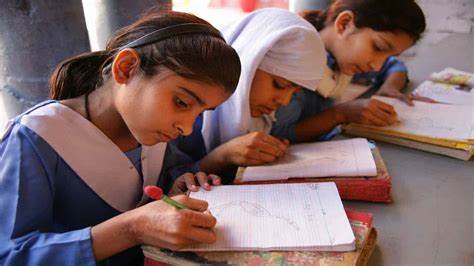Islamabad, Oct 30: Educational Reform in Punjab Should Align with Society’s Practical Needs
The skills that are needed in today’s world are different, for this reason, preparing students for the global world of work is important. Schools have to respond to require teaching skills such as critical thinking, technology or computer literacy, or communication skills etc.
Well, there does appear to be a gap now between what learners are taught in school and the realities of the world of employment out there today.
Closing it should therefore be a priority.
It should also be adjusted in a democratic way – that is, making sure the students get not only a good basic education, but also a good job-oriented one.
The goals should be to facilitate student progression to higher levels of learning,
Enable them to acquire employment and become useful and responsible members of society.
Education reforms are long-term projects require constant focus and dedication from the authorities. Quick fixes rarely work.
They may require changes also on policy level,
but at the same time can require efficient implementation on the local level such as at school level.
Major reforms for instance will require support from everybody
Including teachers, parents and students, administrators etc if it is going to be successful.
They need to become involved in effecting changes,
this is because it is significant that they participate in the formulation of such changes.
As such, these are not problems that have quick fixes which is why directing the reform agendas towards the achievement of these end-user objectives is useful.
The needs there are vast but so is the opportunity to build the future by reforming education.
Addressing Skill Gaps with Educational Reform
It has been rightly said that we should not lose our head over it and completely forget about creation and critical thinking of students.
A liberal education that would entails the humanities,
arts and sciences is equally relevant. They should be able to gain access and equality.
It calls for improvement to make education accessible to all students irrespective of their gender, their financial status or the region they come from.
Teacher training and teacher engagement will be imperative to the process of implementation of the strategies.
Getting teachers on board and enabling them provides the means to adapt their teaching is important.
It will then be crucial to find out where this balance lies. Altogether, you bring up a pertinent concern,
Together, and with an aim to maintain equity and quality of Educational Reform in Punjab for everyone.
If useful I am glad to go further into more positive and constructive ways moving forward. What other factors do you think crucial for this case?
The Role of Teachers and Teaching Methods
You have rightly pointed out some important issues that need attention and one of the important issues is need for a change in the conoscive model of teaching prevalent in Punjab to more of think, solve, discuss and do model rather than cram, memorize and reproduce model.
Improving teachers’ professional development is crucial, as current and as-trained teachers require tools, knowledge and talents to incorporate more active, challenging teaching methods.
The actual application could prove challenging due to the resistance change sometimes attracts, but efforts to change should center on teachers and learners.
From this review, therefore, it is quite feasible to advocate for change of the current practices in Punjab schools towards more progressive practices, should there be good leadership and cooperation. The outcomes – students better prepared for the modern world – would be worth the efforts.









